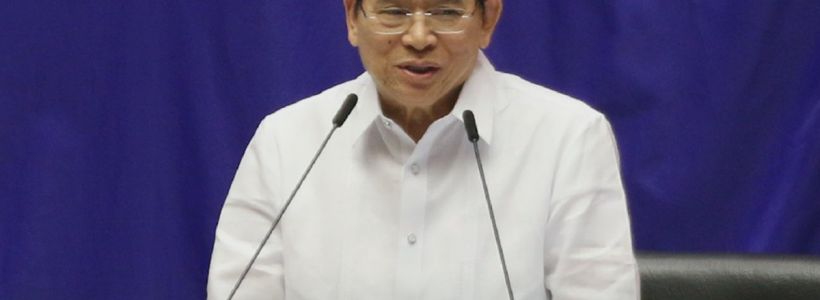House approves freedom of religion bill on final reading.
In its opening session on Monday, the House of Representatives approves on 3rd and final reading House Bill 6492 or the Magna Carta on Religious Freedom bill authored by CIBAC Party List Representative Bro. Eddie Villanueva.
With 256 affirmative votes, HB 6492 gets the lower chamber’s final OK.
“This is indeed good news and a welcome development for all the Filipino people – whether they subscribe to a particular religion or not. With this measure, people can freely live out and conduct their lives in accordance with whatever religious belief they have – without the fear of being persecuted or harassed simply because of fidelity to their belief,” says author CIBAC Rep. Villanueva.
HB 6492 aims to implement and concretize the right of every Filipino to free exercise of religion and conscience guaranteed under Section 5, Article 3 of the Constitution. It defines the bundle of rights subsumed under the concept of freedom of religion and provides for corresponding penalties for its violations.
“With this bill, missionaries or propagators of various religion will be protected from persecution or harassment in the preaching and teaching of their faiths. This will promote a free market of religious ideas in the country so that Filipinos will have access to different religious information and freely choose for themselves, according to their individual decision, which faith they will subscribe to,” explains the CIBAC solon.
“This measure will ultimately liberate the Filipino people from inadvertent religious fanaticism and extremism – which is sometimes the cause of social problems we have – and guide them to the faith that will make their lives flourish the best,” adds Rep. Villanueva.
Among its salient provisions, the bill prohibits and penalizes compelling a person subscribe or join a particular religion or religious group as a requirement in gaining or achieving something (except for religious institutions relative to marriage policies); forcing, threatening, intimidating or unduly influencing a person to commit an act which is in violation of his/her religious belief or conscience; performing any act that will impede, obstruct, prohibit or prevent a person to freely and lawfully exercise and propagate religious beliefs; and denying employment to qualified applicants or severing or terminating solely on the basis of religion.
Further, the bill recognizes that religious freedom is not absolute and provides exceptions. It cannot be invoked on instances where an act results to violence, or is necessary to protect public safety, order, health, property and good morals.







